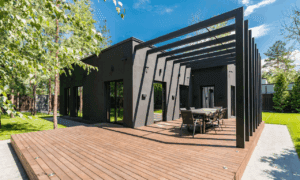Rebuilding abilities, improving mood, boosting quality of life, and strengthening social bonds are all possible with recreational therapy. These are but a few advantages of focused recreational treatment for your overall health and wellness. This post will examine recreational therapy in more detail, discussing its potential advantages as well as how to choose the best therapist.
They make use of leisure activities to assist individuals with certain medical disorders in enhancing their general health, mental stability, and skill set.
Recreational therapists collaborate with your medical team and you to establish goals for your well-being and create a customized plan. Your interests and the resources in your community form the basis of the strategy.
What is Recreational Therapy?
Sports, arts and crafts, music, dance, gardening, and community outings are just a few examples of the activities that are utilized in recreational therapy as a way to help people build skills, improve their physical health, and improve their mental and emotional well-being. Qualified recreational therapists create and carry out individualized plans that address the unique requirements, passions, and capacities of every client.
People with disabilities, long-term diseases, mental health issues, and those recuperating from operations or injuries all greatly benefit from this kind of therapy. Recreational therapy promotes a sense of normalcy and offers a constructive outlet for social interaction and self-expression by concentrating on activities that people like.
What does a recreational therapist do?
Many recreational and leisure-based activities are employed by recreational therapists. They employ these exercises to assist you in achieving your objectives. They create a treatment plan using community-based strategies and treatments. Every patient has a customized treatment plan. They create these programs based on the most recent research. The programs yield a high degree of success in this manner.
The goals of recreational therapists are to enhance your social, emotional, cognitive, and physical requirements. They assist you in acquiring abilities and habits that you can utilize to get by on a daily basis in your community.
Your family and your recreational therapist will collaborate to include your hobbies. They’ll make use of neighborhood resources to ensure your best possible outcome. You will be able to apply what you have learned.
What types of activities does recreational therapy offer?
- Your recreational therapist will lead creative arts using art-based interventions, which have advantages akin to those of art therapy. To explore your emotions and resolve any issues you may have, you will produce art.
- Jigsaw puzzles and board games provide you the opportunity to interact and have fun. You are also learning how to interact with people and cultivate positive attitudes at the same time.
- You can improve your independence, acquire new skills, and boost your self-esteem with outdoor programming. High/low ropes courses, swimming, hiking, and horseback riding are a few examples.
- Your recreational therapist will play music for you to assist you reach objectives like stress relief. These programs have the power to uplift your self-expression and uplift your mood.
- You get the chance to show your creativity when you take part in drama events. You might also pick up new interests and acquire new abilities.
Recreational therapy can be useful for:
Recreational therapy can be helpful for several diseases, yet there isn’t a single condition that it can be used for.
Those who are recuperating from head trauma. People who have experienced brain injury due to an accident or fall, for instance, could find it beneficial to engage in recreational sports or golfing. In addition, they might like to set aside some time each day to read a book or magazine rather than spend it staring at screens all day, which can cause stress.
For those who suffer from long-term mental illnesses, including addiction, depression, or schizophrenia, Frequent engagement in leisure activities alleviates the symptoms of social isolation and anxiety disorders that these people frequently face.
Where do recreational therapists work?
When creating programs, implementing interventions, and evaluating patients, recreational therapists work in offices. On the other hand, they also travel to visit patients in the community and conduct programs, which might take place in homes, public spaces, or other locations.
Care organizations, hospitals, and medical facilities employ a large number of recreational therapists. An increasing number are employed by government agencies or privately run health centers, schools, residential institutions, hospices, and rehabilitation centers.
Benefits for Children
Children’s development and well-being, especially those with physical, cognitive, or emotional difficulties, greatly benefit from recreational therapy. Children can acquire new skills, gain confidence, and form social bonds through creative activities and regulated play.
Improving Social Skills: Social interactions are difficult for many kids, especially those who have autism or social anxiety. Recreational therapy offers a secure setting where patients can hone their problem-solving, cooperation, and communication skills through team sports or games.
Enhancing Motor abilities: A child’s fine and gross motor abilities can be greatly improved by engaging in activities like swimming, dancing, or playing ball games. Enhancing balance, coordination, and general physical fitness are the goals of these exercises.
Benefits for Adults
Maintaining one’s physical and emotional well-being becomes more crucial as one ages. An essential component of aging gracefully is maintaining an active, engaged, and social network, which recreational therapy provides for senior citizens.
Encouraging Physical Health: Tai chi, swimming, gardening, and other forms of physical activity are some of the ways that recreational therapy helps older persons stay active. By preserving strength, balance, and mobility, these low-impact activities lower the chance of falls and other injuries.
Improving Quality of Life: Recreational therapy assists senior citizens in preserving their freedom and fully embracing life. Learning a new skill, pursuing a cherished pastime, or just spending time outside are all examples of activities that improve one’s quality of life and general well-being.
Conclusion
A potent and adaptable strategy for enhancing health and well-being at every stage of life is recreational therapy. Recreational therapy enhances social skills in children and improves cognitive function in older persons. Its many advantages lead to a higher standard of living. Through an emphasis on joyful and fulfilling pursuits, this therapy supports people in overcoming obstacles, developing resilience, and leading more fulfilling lives.
Read More From Techbullion And Businesnewswire.com



































